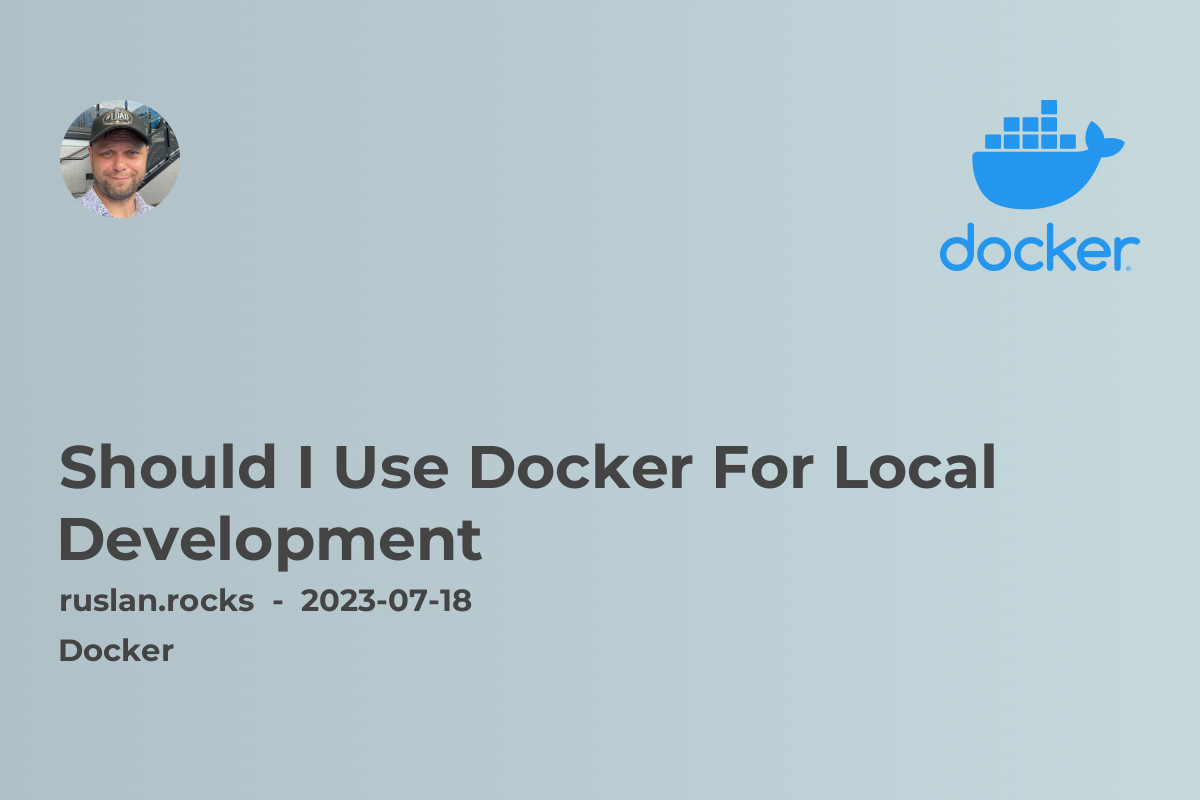- Simplified Environment Setup
- Reproducible and Isolated Development
- Lightweight and Scalable
- Seamless Deployment
- Conclusion

If you're a developer, you've probably heard of Docker. But should you use Docker for local development? The short answer is yes! Docker is a powerful tool that can greatly simplify your development workflow and improve overall productivity. In this article, we will explore the benefits of using Docker for local development and delve into why it's worth considering for your own projects.
Simplified Environment Setup
One of the main advantages of using Docker for local development is the ease of setting up your development environment. With traditional methods, you would need to manually install and configure various dependencies, such as databases, libraries, and frameworks. This process could be time-consuming and error-prone.
Docker provides a solution by allowing you to define your development environment in a Dockerfile. This file contains all the instructions to build an image that includes all the necessary dependencies and configurations. By running a single command, you can create a container based on this image, ensuring that your environment is consistent across different machines and platforms.
By using Docker, you can avoid the hassle of manual setup and eliminate the "it works on my machine" problem. This allows you to quickly onboard new team members, collaborate seamlessly, and focus on writing code rather than dealing with environment issues.
Reproducible and Isolated Development
Another advantage of using Docker for local development is the ability to create reproducible and isolated development environments. Docker containers encapsulate all the dependencies required by your application, making it easier to manage and share your development stack.
Each container runs in isolation, meaning that changes made inside a container do not affect the host machine or other containers. This isolation allows you to work on multiple projects simultaneously without worrying about conflicts between dependencies.
Additionally, Docker provides versioning and tagging mechanisms that enable you to easily switch between different versions of your development stack. This makes it simple to test your application in various environments and ensure consistent behavior across different stages of the development lifecycle.
Lightweight and Scalable
Docker containers are lightweight and designed to run with minimal overhead. Unlike virtual machines, containers share the host machine's core operating system, allowing for efficient resource utilization.
This lightweight nature makes Docker an ideal choice for local development, as it enables you to run multiple containers simultaneously without consuming excessive resources. You can easily spin up additional containers to simulate complex distributed systems or test different components of your application in isolation.
Seamless Deployment
One of the key benefits of using Docker for local development is the seamless transition from development to production. By using containers for development, you ensure that your application runs consistently in different environments, reducing the risk of deployment issues.
Once your application is containerized, you can easily deploy it to any platform that supports Docker. Whether you're deploying to a cloud provider, on-premises servers, or even edge devices, the process remains consistent. This simplifies the overall deployment process and reduces the chances of environment-related bugs or configuration mismatches.
Conclusion
In conclusion, using Docker for local development offers numerous benefits. It simplifies environment setup, provides reproducible and isolated development, is lightweight and scalable, and seamlessly integrates with deployment pipelines. By adopting Docker, you can enhance your productivity, improve collaboration, and streamline your development process.
If you're interested in learning more about Docker and related concepts, check out the following articles:
- What Is Docker: Get a comprehensive introduction to Docker and its core concepts.
- Docker Hub: Explore the Docker Hub, a centralized repository for Docker images.
- Docker Compose: Learn about Docker Compose, a tool for defining and running multi-container applications.
- Container Orchestration Tools Comparison: Discover various container orchestration tools, including Kubernetes and Docker Swarm.
- Docker Vs Kubernetes: Which Container Orchestration Tool Should You Choose?: Understand the differences between Docker and Kubernetes and determine which one is right for your needs.
By leveraging the power of Docker and its ecosystem, you can significantly enhance your development workflow and propel your projects to new heights. So, give Docker a try and experience the benefits firsthand!

